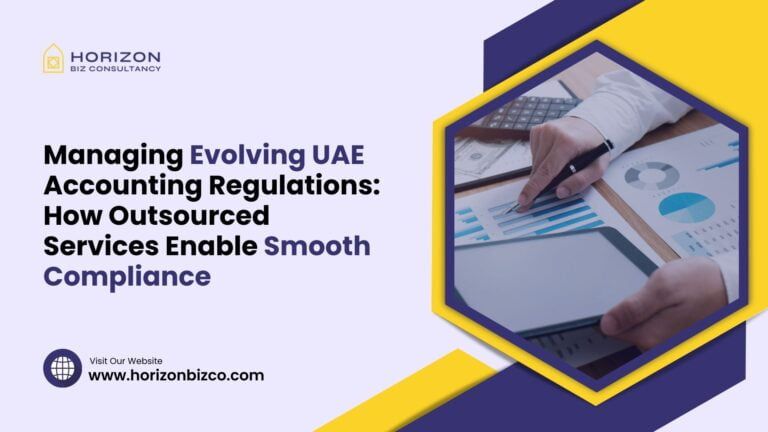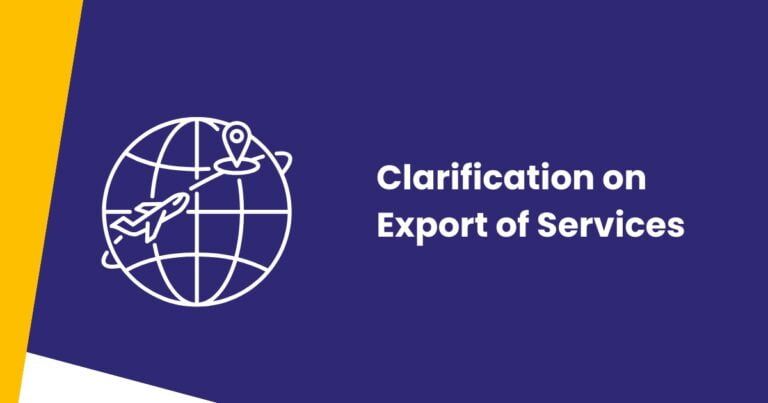Staying compliant with the latest accounting and tax guidelines in the UAE is hard for SMEs. Regulations around value-added tax (VAT), corporate tax, and excise tax keep emerging. Business leaders have a lot to keep track of. They have limited internal bandwidth. Without the right expertise and support, small oversights can easily expose companies to big fines. They can also cause damage to reputation and take up time fixing errors.
Fortunately, businesses can partner with an outsourced accounting services provider. They can do this to navigate complex and ever-changing regulations. They can do this without losing focus on core business growth.
Why Do Accounting Regulations Keep Changing in the UAE?
In recent years, the UAE has implemented several new financial laws and guidelines to develop the economy. Some key reasons for rising regulations are:
- This is important. It will expand and diversify government revenues beyond just oil and gas. This is needed because energy prices fluctuate.
- To align the UAE with global tax standards and improve transparency
- It aims to spur business growth, investment, and economic activity. It does this by improving confidence in financial practices.
Some major recent reforms include:
Value-Added Tax (VAT): A 5% consumption tax on goods and services made mandatory for many businesses from 2018 onwards. This broadened the tax base. Most companies need to register now. They also file VAT returns and charge VAT on products/services. They must also keep records and more.
Excise Tax: An excise tax is a tax on specific goods. It applies to items like tobacco, energy drinks, and soda. This requires corresponding registration, reporting, pricing and compliance implications.
Corporate Tax: Corporate Tax is expected to start in 2023. It will require much preparation. Companies will have to assess its effects on returns, payments, accounting, and more.
Transfer Pricing Regulations: The regulations were introduced to ensure fair pricing. They apply to goods and services exchanged between related companies. The companies can be at home or abroad. This improves financial transparency.
Country-by-Country (CbC) Reporting: Now, global companies need to report key financial numbers. They must report them from each tax jurisdiction where they operate. This is called Country-by-Country (CbC) Reporting. This enables authorities to assess global allocation of income and taxes paid.
Key Benefits of Outsourcing Accounting Tasks
The shifts above were extensive. They make a complex web of rules for companies. The rules involve documentation, math, reports, payments, and penalties. By outsourcing these activities, SMEs can unlock immense strategic and operational advantages:
Up-to-Date Expertise: Outsourced accounting specialists have up-to-date expertise. They have helped many UAE clients understand and follow the latest guidelines. They have hands-on experience. Relying on their up-to-date understanding minimizes non-compliance risk.
Improved Efficiency: Outsourced teams apply their knowledge to gather financial info and complete filings. They save internal teams time and effort. This is by not spending days on changing regulations.
Enhanced Accuracy: They have deep knowledge of regulatory timelines, rules, and acceptable limits. They use it to complete filings, returns, and reports with few errors. This prevents triggering penalties or audits from oversight authorities.
Strategic Insights: Outsourced experts do more than finish transactions. They analyze financial records and trends. Then, they use this to provide tailored advice. This advice empowers smarter choices on growth.
How to Select the Right Outsourcing Provider
But, to use the above benefits fully, you must partner with the right service provider. Here are key aspects to evaluate:
Specialized UAE Experience: Look for providers who have succeeded in handling tax and accounting. Their clients are SMEs based in the UAE. They must have expertise in VAT, corporate tax, excise tax, and similar regulations. Local expertise reduces mistakes.
Breadth of Services: Choose a firm that can give one-stop support. They should cover bookkeeping, payroll, and payments. They should also cover filing VAT returns. This includes CbCR submission, and corporate tax prep, and other key parts. Aligned capabilities enable seamless collaboration.
Technology Infrastructure: Seek providers leveraging automation tools, analytics and online platforms to enhance efficiency, traceability and data-driven insights – rather than relying completely on manual methods.
Communication Standards: They outline expectations. They cover how often to interact and how quickly to resolve queries. They also cover how to report and escalate issues. This prevents gaps that could disrupt compliance timelines.
How Outsourcing Accounting Helps Businesses Scale
Beyond pleasing regulators, outsourcing accounting and tax functions adds value. It empowers sustainable company growth in many ways:
Leadership Bandwidth Freed Up: When specialized teams smoothly handle information gathering, number crunching, documentation and filing needed for compliance, company leaders can allocate their strategic focus exclusively towards critical growth initiatives.
Financial Controls Strengthened: Outsourced accountants are embedded in financial reporting, transaction verification, and audit preparation. This adds oversight that cuts fraud and leakage risks.
Informed Decisions Enabled: Expert analysis shows where to cut costs. It also shows how fast investments pay back. It also guides portfolio adjustments to use new tax incentives. This helps management make smart decisions quickly.
Innovation Prioritized: Reliable outsourced accounting helps companies reallocate funds. They can use the money for new products, customer experience, hiring, and other key moves. This is instead of just keeping the status quo.
Conclusion
Regulations are always changing in the UAE. Outsourced accounting lets SMEs adapt smoothly by using outside expertise. The right partner provides updated expertise and scale. They also offer risk mitigation and tailored recommendations. These things free up internal bandwidth for sustainable growth. Outsourced accountants are embedded within key processes. They help companies navigate rising compliance complexity.
FAQs
Specialized providers help find tax liability exposure areas. They advise on needed corporate structure changes. They ensure proper bookkeeping is kept for scrutiny.
Reputable outsourcing providers invest heavily in data security. This includes confidentiality agreements. These often surpass the abilities of in-house teams.
The standard offerings include detailed monthly status reports, filing receipts, and audit logs. They also include personalized review meetings. These meetings let business leaders track compliance progress closely across various regulations.





